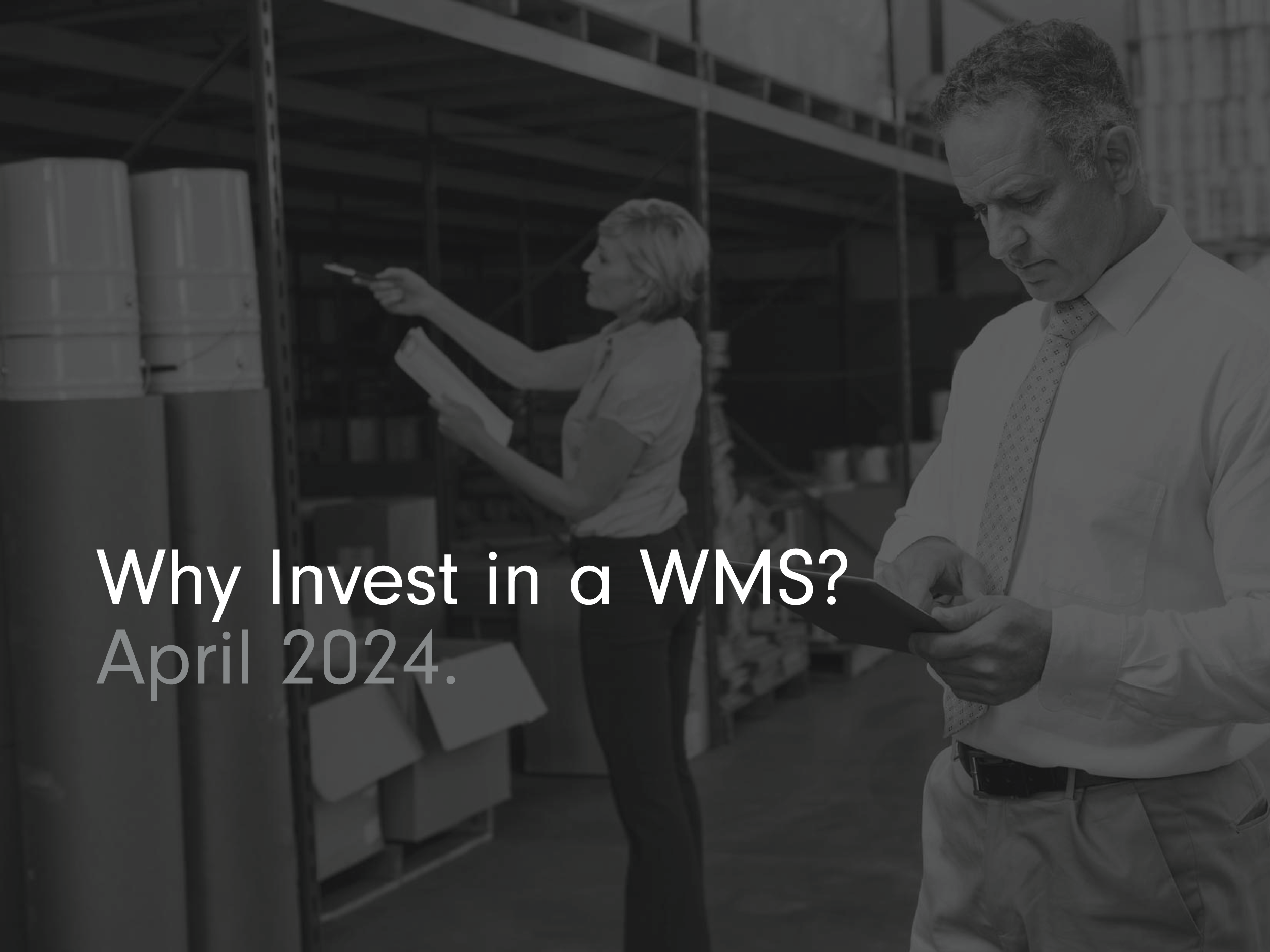Why Invest in a WMS?

In the dynamic landscape of supply chain and logistics, the term “efficiency” wears the crown. It’s not just about streamlining operations; it’s about fostering an environment where the movement of goods is so finely orchestrated that it results in cost savings, better customer satisfaction, and a competitive edge in the marketplace. At the heart of this revolution lies the Warehouse Management System, or WMS. It’s more than just software; it’s the central control system that ensures your warehouse operates with precision, agility, and intelligence.
For those considering the leap into WMS solutions, or for seasoned professionals looking to understand the depth of their investment, this comprehensive guide walks you through the decision-making process, benefits, considerations, and real-life implications of investing in a WMS. From understanding the nuts and bolts of selecting a system to witnessing the tangible ROI in your operations, this exploration will shed light on one of the most strategic moves a modern business can make.
Defining the Warehouse Management System (WMS).
At its core, a WMS is a sophisticated software application designed to support and optimise the entirety of warehouse operations. It oversees the movement and storage of materials within a warehouse, moreover, the WMS caters to various operations, such as shipping, receiving, put-away and picking, inventory management, and inventory cycle counting, among others.
Why does it matter?
In an age where customer expectations are at an all-time high, WMS acts as a game-changer. It isn’t simply about digitising traditional warehouse practices; it’s about transforming them into a well-oiled, data-driven machine that not only meets customer demands but also anticipates and adapts to the changing tides of the market.
The Irrefutable Benefits of WMS Investment.

Improved Inventory Management
Real-time inventory tracking, demand forecasting, and automated replenishment are core features that a robust WMS brings to the table. With such capabilities, your business can ditch the headaches of overstocking, understocking, and the domino effect these issues have on your supply chain.
Enhanced Order Fulfillment
The WMS streamlines the entire order fulfilment process, ensuring accuracy and speed. Whether through efficient pick paths, optimised put-away strategies, or real-time data updates, your business can experience a fulfilment revolution that leads to happier customers and repeat business.
Increased Efficiency and Productivity
By introducing automation to repetitive tasks, a WMS reduces the scope for human errors, slashes processing times, and ultimately enhances the overall productivity of your warehouse staff. This newfound productivity can be channelled into value-adding activities that encourage business growth.
Better Decision Making with Real-time Data
Access to real-time data and analytics empowers warehouse managers to make informed decisions. These can range from customising picking methods for specific orders to strategically allocating resources based on actionable insights derived from the WMS.
Cost Savings and ROI
WMS implementations historically have shown remarkable ROI. By cutting down on excess inventory, labour costs, and inefficiencies, the system paves the way for cost savings that are as strategic as they are sustainable.
Before You Sign: Key Considerations in WMS Investments.

Scalability and Integration with Existing Systems
A WMS is a long-term investment, and as such, must grow with your business. Scalability is vital, and so is its ability to seamlessly integrate with other operational systems, such as ERPs and CRMs, without friction.
User-Friendly Interface and Training
The value of a WMS is only as good as the people using it. Ensure your WMS vendor offers a system with a user-friendly interface and provides comprehensive training to your team members to guarantee adoption and fluent operation.
Vendor Support and Customisation
The right vendor will be your partner in success. Evaluate their support infrastructure and offerings, and consider the importance of customisation. Your warehouse is unique, and a WMS should adapt to your particular workflows, rather than the other way around.
Security and Compliance
In an era of data breaches and stringent regulations, the security of your warehouse data is non-negotiable. A WMS should adhere to industry standards and offer robust security features to protect your most critical information.
WMS implementations historically have shown remarkable ROI. By cutting down on excess inventory, labour costs, and inefficiencies, the system paves the way for cost savings that are as strategic as they are sustainable.
Case Studies and Examples.

Real-world examples demonstrate the transformational power of a WMS. From observing the before and after of WMS implementation to understanding its role in catapulting a business into a new era of productivity, these cases paint a vivid picture of the system’s value in diverse industries and contexts.
A Mid-Sized Retail Distributor
By deploying a WMS, this distributor significantly improved their order accuracy and fulfilment time, leading to a tangible increase in sales and customer satisfaction ratings. The WMS also saved the company substantial costs in labour and inventory management, showcasing a direct correlation between technology and profitability.
The E-Commerce Behemoth
An online retailer with a sprawling global reach testified to WMS’s role in centralising and optimising operations across multiple warehouses worldwide. The result was a cohesive fulfilment strategy that managed rapid growth and rising customer demands without miss or delay.
Steps to Selecting the Right WMS.

Understanding Your Business Needs
Take the time to analyse your existing warehouse operations and identify areas where a WMS can make a meaningful difference. Prioritise the features that align with your strategic objectives and growth plans.
Researching and Shortlisting Vendors
There’s a WMS solution for every need, and research is the beacon that helps you find the right one. Look for vendors with a proven track record, strong industry knowledge, and a commitment to innovation.
Requesting Demos and Assessing Features
Real-life experience is pivotal in the decision-making process. Requesting vendor demos and assessing features hands-on allows you to see how the system would function in your unique warehouse environment.
Calculating ROI and Making the Decision
The decision to invest in a WMS is a financial one, and ROI calculations should be a part of that. Balance initial costs with long-term benefits, and ensure that investing in a WMS is an investment in your business’s future.
Implementation and Adoption Challenges.
Common Challenges and How to Overcome Them
While no implementation is without its hurdles, awareness and preparedness can help businesses overcome common challenges such as data migration, change management, and system downtime.
Importance of User Adoption and Training
An invested user base is the hallmark of a successful WMS implementation. Communicate the benefits to your team, and provide them with the tools and knowledge they need to operate the system with confidence.
Future Trends in WMS.

Overview of Emerging Technologies in Warehouse Management
Artificial intelligence, machine learning, IoT, and blockchain are not just buzzwords; they’re the future of WMS. These technologies promise to take efficiency, accuracy, and connectivity to unprecedented levels.
Predictions for the Future of WMS
Industry experts are optimistic about the future of WMS. They foresee a world where intelligent warehouses are not only efficient in their operations but are connected nodes in a network that spans the globe, sharing data and intelligence for the benefit of all.
Korber WMS: A Modular Solution Suite to Fit Your ERP.
The Körber WMS stands at the forefront of warehouse management solutions. Its adaptability and scalability cater to businesses of all sizes, ensuring a customised fit that aligns with your unique needs and growth trajectory. From enhanced order accuracy to sophisticated mobile reporting, the Körber WMS is a strategic ally in the orchestrated dance of modern warehouse management.
With Körber’s WMS, you don’t just invest in a point solution; you invest in a supply chain platform designed to optimise and evolve, day by day, season by season, to match the cadence of your business and outpace the expectations of your customers.
Conclusion.
In this expansive guide, we’ve showcased the pivotal role a WMS plays in the modern business setting. The benefits are clear, the considerations significant, and with the right steps and partners, the investment is indisputable. If your supply chain is a chessboard, a well-implemented WMS is the grandmaster’s move that sets the pieces up just right for ultimate victory.
The message is unequivocal — now is the time to invest in the future of your warehouse. With technological advancements paving the way, the only constant in the equation of success is the enterprise’s readiness to adapt. The question isn’t whether you can afford a WMS investment; it’s whether you can afford not to.
For those looking to write the next chapter in their business’s success story, the WMS is a chapter not to be missed. The call to action is resounding — begin your WMS investment exploration today, and chart the course for a tomorrow where efficiency, accuracy, and profitability reign supreme in your warehouse kingdom.